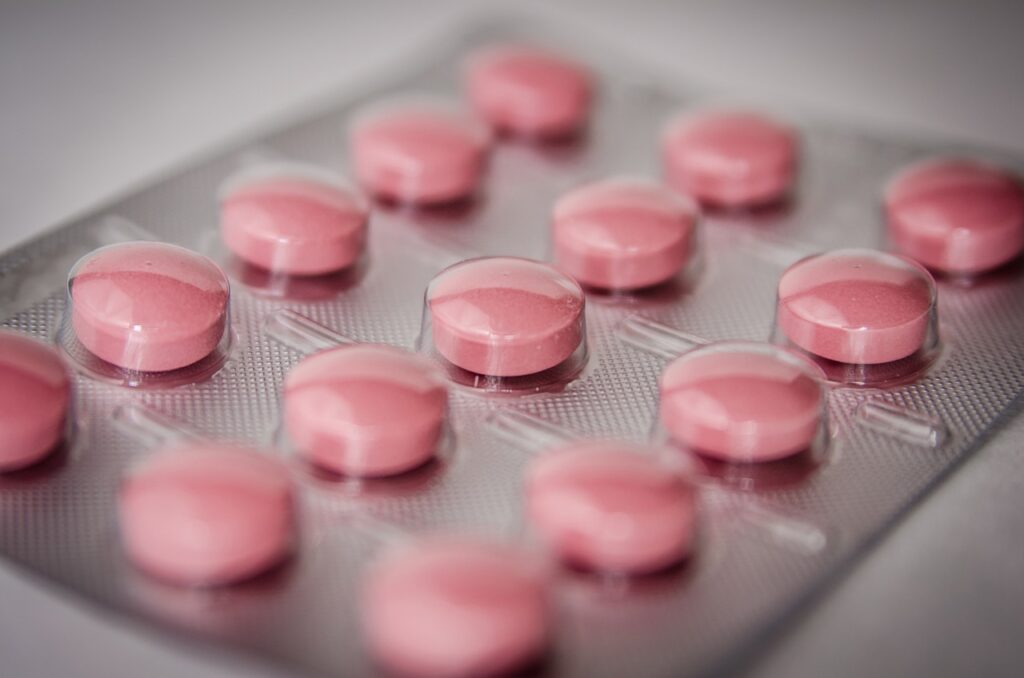Discover comprehensive information for all aspects of sexual health and find resources and guidance to empower your sexual well-being.
Erectile dysfunction (ED) is a condition that affects many men worldwide, leading to significant stress,…
Discover comprehensive information for all aspects of sexual health and find resources and guidance to empower your sexual well-being.
Erectile dysfunction (ED) is a condition that affects many men worldwide, leading to significant stress,…
The International Society for the Study of Women’s Sexual Health describes Hypoactive sexual desire disorder…
Erectile dysfunction (ED) is a common condition that affects millions of men worldwide, causing distress…
Erectile dysfunction (ED) means having trouble getting or keeping an erection that’s good enough for…
Achieving and maintaining a strong penile erection is a common concern for many men. It…
Feeling nervous about sexual performance, known as Sexual Performance Anxiety (SPA), is pretty common. But…
Commitment issues can often manifest in romantic relationships, work, and other personal or professional spheres.…
Boron, a trace element is naturally present in many foods. It’s also available as a dietary supplement. It plays a crucial role as a structural component in plant cell walls, necessary for plant growth.
It is not classified as an essential nutrient for humans because its clear biological function has not yet been identified. However, it may have positive effects on functions such as reproduction and development, bone formation, brain function, and immunity.
Related: Zinc: Everything You Need to Know
Table of Contents
ToggleIt is most abundant in plant foods, such as fruit, tubers, and legumes. The boron content of selected foods is shown in the table below.
| Food | Milligrams of Boron per serving |
| Prune juice, 1 cup | 1.43 |
| Avocado, raw, cubed, ½ cup | 1.07 |
| Raisins, 1.5 ounces | 0.95 |
| Peaches, 1 medium | 0.80 |
| Grape juice, 1 cup | 0.76 |
| Apples, 1 medium | 0.66 |
| Pears, 1 medium | 0.50 |
| Peanuts, roasted, salted, 1 ounce | 0.48 |
| Broccoli, boiled, chopped, ½ cup | 0.20 |
| Banana, medium | 0.16 |
| Coffee, 1 cup | 0.07 |
| Milk, whole, 1 cup | 0.04 |
| Rice, white, cooked, ½ cup | 0.03 |
| Bread, white, 1 slice | 0.01 |

Dietary supplements offer boron in various forms, such as sodium borate, sodium tetraborate, boron amino acid chelate, etc. The elemental boron in these supplements typically ranges from 0.15 to 6 mg.
It might be important for bone growth and strength. Studies on animals suggest that not having enough boron can lead to issues like abnormal limb development and weaker bones. Some animal studies show that giving boron supplements can improve bone strength.
However, when it comes to people, the evidence is a bit mixed. A study with Korean women didn’t find a clear link between the amount of boron they consumed and the density of their bones. In another study with female athletes and sedentary females, boron supplements affected some blood levels that are related to bone health, but it didn’t directly change bone density.
In simple terms, while there are hints that it could be good for bones, more research is needed to be sure about its impact on human bone health.
It is crucial for the brain to work well, and not having enough of it might have negative effects on the central nervous system. Studies on both people and animals have shown that when boron is missing from their diet, the electrical activity in their brains goes down.
In a study where people were given extra boron (3 mg/day) for about 63 days, their brain wave patterns changed. It looked like there was less activity at lower frequencies and more activity at higher frequencies in the brain.
Boron has an impact on the hormones in our bodies, especially the ones related to sex. In men, it can boost low testosterone levels, and in women going through menopause, it can increase estrogen levels. For instance, in a study, intense exercise for two months messed with testosterone levels in non-professional bodybuilders but taking boron supplements helped regulate those hormone levels.
In menopausal women, boron can increase estrogen production and bring back their sexual energy in just a few days of treatment. It’s like a natural remedy that can replace or work alongside hormone replacement therapy. Boron can also ease symptoms linked with menopause, such as night sweats and hot flashes. This is important because, after menopause, women often experience hormonal imbalances that can affect many crucial systems in the body.
Boron is considered a healer for wounds. A solution with 3% boric acid was found to heal deep wounds. Back in the day, a solution called boric water was recognized for its ability to fight microbes. Nowadays, even in small amounts, borates are used to treat various wounds. We’re not entirely sure how boron helps in the healing process, but some experiments have shown that it plays a role in making proteins, collagen, and proteoglycans, which are all essential for healing wounds.
Boron’s anti-inflammatory and antioxidant effects are promising for boosting immune health.
Boron is recognized as a generally effective antifungal agent, making it helpful in addressing issues like yeast infections and other health problems related to fungi.

The evidence found so far, based on watching people and a few small studies, hints that boron might be useful for easing the symptoms of osteoarthritis, maybe by calming down inflammation.
One small study gave 20 people under 75 years old 6 mg of boron every day for 8 weeks. It seemed to reduce their osteoarthritis symptoms.
Another study with 20 people found that 6 mg/day of boron helped with joint stiffness, reduced the use of pain relievers, and improved movement in those with mild to moderate or severe osteoarthritis. However, this study was very small and not as rigorous because it didn’t compare the boron to a placebo.
In a more careful study, 60 people with osteoarthritis took 1.5, 3, or 6 mg/day of boron (as calcium fructoborate) for 2 weeks. The boron supplements significantly lowered inflammation markers in their bodies
So, it seems like boron, especially in the form of calcium fructoborate, could be promising for easing osteoarthritis symptoms. But more solid research with larger groups of people is needed to be sure.
There’s some early evidence suggesting that the amount of boron in your diet might have something to do with the risk of getting cancer.
A few studies noticed that people who consume more boron seem to have a lower risk of certain cancers. For instance, in a study with 763 women with lung cancer, those who had less boron in their diet had almost twice the risk compared to those who had more boron.
In another study in Turkey looking at prostate cancer risk, men who got more boron (about 6 mg/day) had smaller prostate glands than those who got less boron (0.64–0.88 mg/day). However, the levels of a marker called PSA, which is often linked to prostate cancer, didn’t really differ between the two groups.
But, there haven’t been proper experiments (clinical trials) that directly studied whether boron can prevent or treat cancer. So, while there’s a hint that boron might have some connection with cancer risk, we need more research to really understand what’s going on.
The World Health Organization (WHO) suggests that a range of 1–13 mg per day is acceptable for boron consumption, with many aiming for approximately 3 mg. The upper limit, beyond which negative side effects may arise, is set at 20 mg per day.
Although exceeding this limit regularly is difficult, there are worrisome symptoms associated with toxicity. These include hair loss, fatigue, headaches, kidney injury, and digestive issues. Also, toxicity becomes a real concern when individuals consume large amounts of boron through supplements without professional guidance.
References:
Dr. Nishtha, a medical doctor holding both an MBBS and an MD in Biochemistry, possesses a profound passion for nutrition and wellness. Her personal journey, marked by significant struggles with physical and mental health, has endowed her with a unique empathy and insight into the challenges countless individuals face. Driven by her own experiences, she leverages her background to offer practical, evidence-backed guidance, empowering others on their paths to achieving holistic well-being. Dr. Nishtha truly believes in the interconnectedness of the mind and body. She emphasizes the significance of understanding this connection as a crucial stride toward attaining balance and happiness in life.

